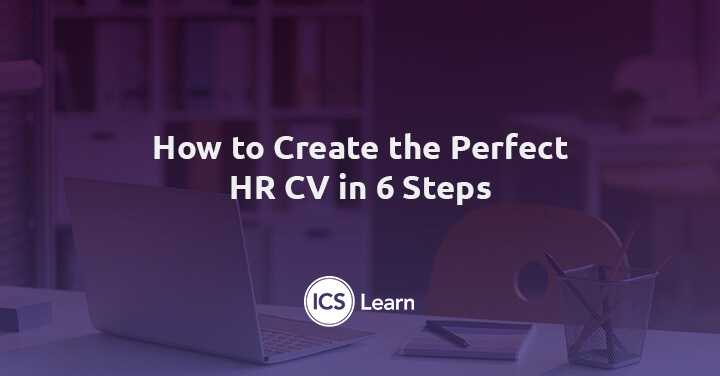Human Resources

The 5 Best HR Qualifications in 2023

23 January 2023 - 4 min read
From dealing with employee mental health and well-being to developing a comprehensive ESG framework, the role of HR has seen significant expansion over the last few years, with HR professionals stepping up more than ever to address social changes in their roles.
This has ultimately led to attracting the attention of both aspiring and current HR professionals looking to upskill and expand their skill sets to help their organisations navigate through such changes.
However, with so many choices of training and development programmes catered towards the HR industry, it can prove challenging to navigate which qualification best suits and aligns with your personal career prospects.
That's why we've created a list of the 5 best HR qualifications to study in 2023 to help you make the best choice for you!

1. CIPD Qualifications
Among the best - and most popular - HR qualifications include those from none other than the Chartered Institute of Personnel and Development (CIPD).
Offering qualifications for the HR novice to the seasoned vet, the CIPD’s HR - and L&D - programmes are globally recognised courses that have long been considered the ultimate benchmark for qualifications in the people profession.
CIPD HR qualifications are offered at three levels. These include:
CIPD Level 3 Foundation Certificate in People Practice: ideal if you’re just getting started in your HR career and want to develop the knowledge and skills you need to succeed.
CIPD Level 5 Associate Diploma in People Management: perfect if you’re looking to stand out or move up to a mid-level HR role (e.g. HR management).
CIPD Level 7 Advanced Diploma in Strategic People Management: perfect if you want to excel in senior HR roles and become eligible for Chartered status - the highest industry accolade for human resource professionals.
With CIPD qualifications being widely sought after by employers, having a CIPD qualification on your CV will undoubtedly open new doors for you while also helping you stand out from the competition.

2. SHRM Certification
The Society for Human Resource Management (SHRM) offers short qualifications which focus on providing HR managers with the necessary knowledge to encourage productivity in their organisations while also helping them improve their people management skills. As a result, these qualifications are ideal for progressing your career forward while also helping you identify how to align your organisation’s employees with the company objectives.
Unlike the CIPD, however, the SHRM focuses on HR professionals that already have a certain level of experience under their belt.
More specifically, the main certifications they offer include:
- SHRM-CP (Certified Professional): This programme is great for HR professionals functioning at an operational level, supporting daily HR functions and implementing HR policies as well as serving as the HR point of contact for staff.
Although it’s not required in order to be eligible for this programme, one year experience in an HR role or having a Graduate Degree is recommended. - SHRM-SCP (Senior Certified Professional): This qualification is ideal for HR professionals that function at a strategic level in the organisation; overseeing execution of HR policies, operations, and strategies, or directing the HR department as a whole, who have at least 3 years experience in an HR role.
In order to be eligible for this certification, applicants must be able to demonstrate that they have devoted at least 1,000 hours per calendar year to strategic-level HR or HR-related work.
Keep in mind that with the SHRM, your option to study in-person or online is dependent on the time of year, and subsequently, the duration of each certification will vary.

3. HRCI Certification
For over 45 years the Human Resource Certification Institute has been offering qualifications that set standards for excellence in the HR field.
Developing work-class learning through the administration of eight globally recognised certifications, the HRCI certifications aim is to help HR professionals develop and achieve new skills that will subsequently drive lasting results.
The programmes available from the Human Resource Certification Institute are:
- Associate Professional in Human Resources (aPHR)
- Associate Professional in Human Resources—International (aPHRi)
- Professional in Human Resources (PHR)
- Professional in Human Resources—California (PHRca)
- Professional in Human Resources — International (PHRi)
- Senior Professional in Human Resources (SPHR)
- Senior Professional in Human Resources—International (SPHRi),and
- Global Professional in Human Resources (GPHR)
Each programme empowers you to build your knowledge base prior to your HRCI exam, covering topics that you may need to grasp to achieve your certification, or you may take them simply out of interest for your professional development.
With HRCI you can take online courses or study in-person depending on what best suits your needs.

4. HR Degree
If you have more time on your hands and are able to study full-time, then a Bachelor’s degree in HR is a great route for you to go down if you want to hit the ground running in the HR field once you’ve received your degree.
Typically lasting three years, an HR degree will enable you to study the basics of earning a career in human resources, including recruitment, talent acquisition, HR strategies, employment law, and training and development in your first two years. The third year, however, becomes more flexible with optional modules that you can study to line up with your career goals in order to find your niche.
Some learning institutions even offer a placement year, allowing you to gain practical, on-the-job experience while you earn a salary, but this can sometimes mean that the length of your degree may be extended.
With the HR degree route, it’s important to remember that not all HR degrees are created equal, so depending on what your goals are (e.g. becoming a Chartered Member), then you need to ensure that the programme you enrol on aligns with the CIPD’s standards.
5. Master’s in HR
If you already have a degree or want to make a career change, a Master’s degree in HR is a great way to enhance your knowledge and increase your chances of landing a senior role in the people profession.
A full-time HR Master’s degree takes around one year to complete if you have the availability to study full-time, but there are options to study via distance learning by enrolling on an MSc in Human Resources Management. You can also opt to extend the length of your study to two years while maintaining full-time employment, however not all universities offer this option.
What you study will depend on which course you take and where, but generally speaking you’ll study, in-depth, the following:
→ The role of operational and strategic HR in the organisation
→ How to improve and manage employee retention, and
→ Skills development, such as how to motivate and retain teams
Our best advice for this route is to make sure you look into the specifics of the course before you sign up, simply to make sure the qualification is the best one for you before committing to it.
We hope that this blog has provided you with some clarity and has helped steer you in the best direction for you and your professional prospects if you’re looking to kickstart or advance your HR career.
Interested in studying a 100% online HR qualification career with us? Enquire today for your free course guide and get started.
Download Your Free CIPD Course Guide
Get information on our CIPD courses
Share this post
How to Create the Perfect HR CV in 6 Steps
If you're stuck on how to refresh your CV to be more HR-focused, we've got you covered in 6 simple steps! Check them out here.
HR Career Advice from... HR Consultant Natalie Ellis
Successful HR consultant Natalie shares her advice on building a network, choosing the right company, and how to stand out in the brave new world of HR.














